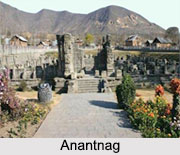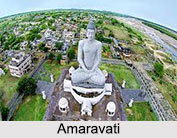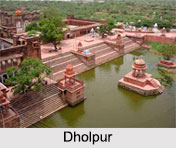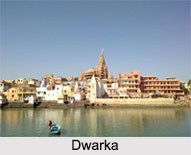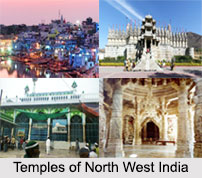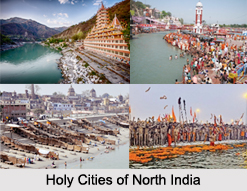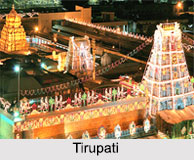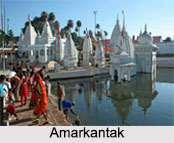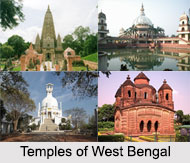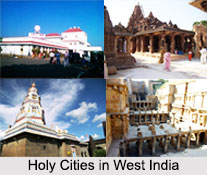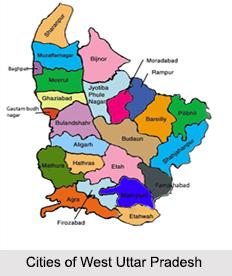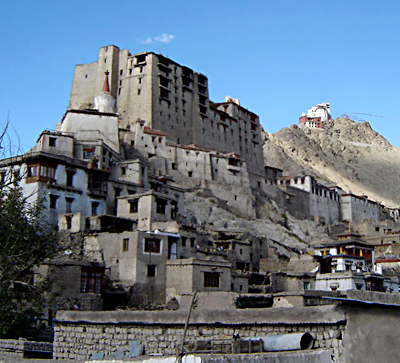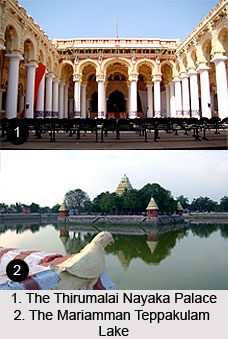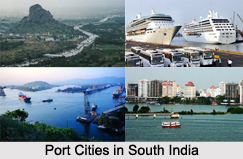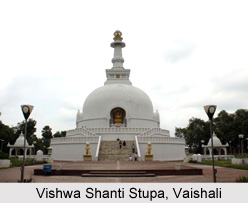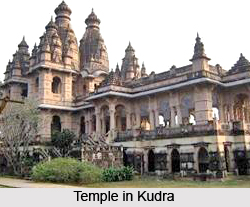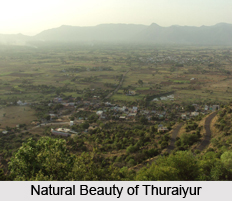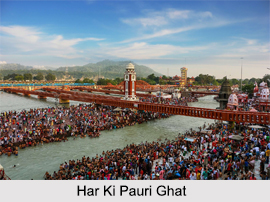Introduction
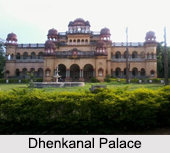 Dhenkanal is an urban area in district headquarters town of the Dhenkanal district located in the eastern state of India, Odisha. Dhenkanal is famous for its wonderful Dhokra art and this city has many educational centers for the graduates and the post graduates.
Dhenkanal is an urban area in district headquarters town of the Dhenkanal district located in the eastern state of India, Odisha. Dhenkanal is famous for its wonderful Dhokra art and this city has many educational centers for the graduates and the post graduates.
Location of Dhenkanal
Dhenkanal is strategically located on the National Highway 42; (NH 42). Dhenkanal is well connected to the major towns of the state. Bhubaneshwar, the state capital city is located at a distance of 100 km. from Dhenkanal.
History of Dhenkanal
Dhenkanal was once the Princely State of India, when British East India Company began to rule after the decline of Maratha Empire. The royal state of Dhenkanal was formed in medieval era by Gajapati Empire ruler Maharaja of Utkal Sri Sri Pratap Rudra Deb. In 1529, Dhenkanal emerged as the administrative capital in Odisha. In 1700, the Rajas of Dhenkanal saw the revolts against the state by the peasants and farmers. They seek the help from the British Empire in India, and they helped the Rajas of Dhenkanal for suppressing the revolt. Praja Mandal Movement after that was closely associated with Indian National Congress and then this princely state became the seat of Indian Independence Movement. 
The Princely State of Dhenkanal was one of the well known native states during the rule of the British Empire in India which was managed by native rulers or Indian princes under the indirect control of the British Government of India. At present the princely state is located in Dhenkanal district in the Indian state of Orissa. The headquarters of the district is at Dhenkanal town.
History of Princely State of Dhenkanal
In the year 1529 AD, the forces of Gajapati Maharaja of Utkal Sri Sri Pratap Rudra Deb seized the region of Dhenkanal. The ruler appointed his commander as the Raja of Dhenkanal, who became the hereditary ruler of Dhenkanal. Eventually proper administration was established and there was noticeable progress in almost all issues related to the state. Raja Bhagirathi Pratap, decorated with hereditary title of Mahindra Bahadur, was one of most respected and successful rulers of the state. Prince Shankar Pratap, the eldest son of Raja Sri Sura Pratap Singh Deo Mahindra Bahadur, was appointed as the Raja in 1926. At the time, he was still a minor and continuing his studies.
Later Shankar Pratap went to study Bar at Law in England. After he came back to the princely state of Dhenkanal, the ruler took charge of the administration of the state. During the period when Raja Sri Shankar Pratap Singh Deo Mahindra Bahadur was completing his studies in England, the administration of the state was managed by Pattayat Nrusingha Pratap Singh Deo, his younger brother. He constructed a palace containing 100 rooms at Jatan Nagar. The labourers were forced and tortured severely. Under his rule, the populace of the state was financially exploited. The people of the princely state expected that the condition of the state would improve after Raja Sri Shankar Pratap Singh Deo Mahindra Bahadur returned from England after completing his studies and took charge of the administration of the state.
But Raja Sri Shankar Pratap was even more oppressive which compelled his subjects to rise against him in revolt. Harmohan Patnaik, the grandson of Dhenkanal Bebarta Jagannath Patnaik, and Dewan Damodar Patnaik assembled and organized the rebellion. Harmohan Patnaik formed the Dhenkanal Praja Mandal and was appointed as the elected President. The Dhenkanal Praja Mandal was the initial Praja Mandal in British India and after this many such organisation were established through all the princely states of India. These were initiated as public institutions that resisted the practices of the native rulers or Indian princes at the time.
The Dhenkanal Praja Mandal conducted mass congregations and a Charter of Rights was drawn. During the period of Indian freedom struggle, the Indian National Congress also supported and became related with the Dhenkanal movement. Several of the rebels were regularly imprisoned and arrested. Harmohan Patnaik was repeatedly arrested and a s aresult the people of the princely state of Dhenkanal surrounded the palace of Raja Sri Shankar Pratap Singh Deo Mahindra Bahadur. He felt threatened and released Harmohan Patnaik unconditionally.
After Indian achieved independence form the British dominion on 15the August 1947, the revolt was ceased. Harmohan Patnaik was accepted as an adviser by Raja Sri Shankar Pratap Singh Deo Mahindra Bahadur. Eventually the princely state was taken over by the newly created Union of India and the native ruler was deposed. Raja Sri Shankar Pratap was elected as Member of newly formed Orissa Legislative Assembly and his wife Rani Smt. Ratna Prabha Devi served as an MLA for 2 terms. Brigadier Kamaksha Prashad Singh Deo, son of Raja Sri Shankar Pratap, was appointed as a Member of Indian Parliament and a Minister in the cabinet of Government of India. He was also the President of Orissa Pradesh Congress Committee as well.
Geography of Dhenkanal
Dhenkanal is located between 20.67 degree North latitude and 85.6 degree East longitude. It is situated at a height of 80 meters above mean sea level.
Demography of Dhenkanal
According to the Population Census in the year 2011, Dhenkanal had a population of 67,414. The males in the urban area of Dhenkanal constitute 53 percent of the population and females are 47 percent. The average literacy rate is about 79 percent, which is higher than the national average of 59.5 percent. The male literacy are in Dhenkanal is 84 percent and female literacy rate is 74 percent.
Education of Dhenkanal
Dhenkanal is also the home of some eminent educational institutions like IIMC, NYSASDRI School of Journalism & Social Work, Dhenkanal College, Synergy Institute of Engineering & Technology, Vidyarthee Residential College and many more.
Tourism in Dhenkanal
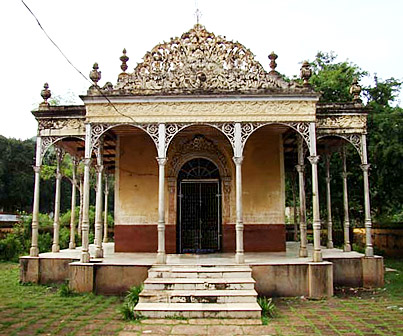 The tourism of Dhenkanal develops centering the holy places and temples reverberating the cultural heritage of the district. The district of Dhenkanal is dotted with innumerable temples and muths, date back to the ancient times of the pre historic ages. Dhenkanal is the meeting point of all the branches of Brahmanism including Saivism, Vaishnavism and Shaktaism, which encourage the tourism industry of Dhenkanal to flourish and achieve a thriving prosperity.
The tourism of Dhenkanal develops centering the holy places and temples reverberating the cultural heritage of the district. The district of Dhenkanal is dotted with innumerable temples and muths, date back to the ancient times of the pre historic ages. Dhenkanal is the meeting point of all the branches of Brahmanism including Saivism, Vaishnavism and Shaktaism, which encourage the tourism industry of Dhenkanal to flourish and achieve a thriving prosperity.
The Kapilah Temples belonging to the Saiva sect constitute to be the key interest in the tourism industry of Dhenkanal. It is a series of temples located in a single premise. The temple, which is 60 ft in height, can be approached by two ways- either by climbing 1352 steps or by the `Barabanki` or the travel twisting way. The chief interest of the Kapilah temple is the wooden idol of Jagamohana, Sri Ganesh, Kartikeya, and Ganga Devi. The legendary stories regarding the temple and the exquisite artistic fabrications around the temple walls fetch the tourist to its core. According to some scholars, the Kapilah Temples are older even the Chandrasekahr Jew temple and is also recognized as "Buddha Linga".
Another temple of Saiva sect, Naganatheswar Temple is famous in the tourism industry of Dhenkanal especially for its antiquity and the legendary stories regarding the temple. It is the most ancient Saiva temple and according to scholar Pandit Nagendranath Mohapatra Naganath satakam it is one of the 12 yotir Lingas.
Astasambhu Temple bears the specimen of the Sulki kings, who were once the feudatory of the region of Dhenkanal. The architectural tapestry around the temple walls embodies the pattern of Sulki art. A series of 8 temples and its structural pattern constitute it to be of significant interest in the tourism of Dhenkanal.
Sri Annakoteswar, one of the Saiva temple draws special attention in the tourism of Dhenkanal because of its amazing Sivalinga, which grooms in the bright fortnight and reduces on the dark half.
The tourism industry of Dhenkanal is profitably supported by the Vaishnav holy places. Since Vaishnavism was spread in different forms in different ages, the cult of Vaishnavism concentrated in the core of the district of Dhenkanal. A number of the holy places belonging to the different branches of Vaishnavism including the Ramanandi Vaisnavas, the Gaudiya Vaisnavas, and the Pancharattra all developed side by side in the district. The tourism industry of Dhenkanal has more to offer to the followers of the Vaishnav cult.
Siddaha Balaram Temples constitute to be a crucial figure in the domain of vaishnav cult in the district. The structural pattern of the temple along with the deity is the key feature of the tourist attraction here. In the sanetorium sanctum, Jagannath is seen with Balaram. But Subhadra being uniquely different from the others is kept separately and she represents the spiritual entity for the people of Dhenkanal
Sri Raghunath Temple of Saptya sajya is the famous Vaishnav temple is located about 900 ft of the hilltop. The legendary stories regarding the temple have given it a mythological status. Moreover the scenic beauty of the surroundings gathers tourists throughout the year. In the tourism industry of Dhenkanal it draws attention due to its antiquity and the fact that the worship of Lord Rama was initiated in this temple on 18th April 1956. Surrounding the Raghunath Temple a number of temples sprang up in the nearby adjacent areas. Those areas, not only are important as a tourist spot, but also at the same time serve as a small picnic sites because of the picturesque scenery in its vicinity.
Kunjakanta Temple at Dhenkanal is situated on a hilltop is renowned for the image of Radhakrishna, which was installed in the temple and ritualistic pattern of Brundavan was adopted.
At the foot of the Kapilas Mountain Jagannath Temple is located. It is one of the principal temple of the Vaishnav cult. During the festival of Rathajatra, a huge gathering occurs in the place, which is profitable for the tourism industry of Dhenkanal.
The Narayan Temple at the Kapilas hill is the significant name in the tourism industry of Dhenkanal, which amply demonstrates the amalgamation of Saivism & Vaishnavism. The beautiful black granite image of Shri Narayan and the stream flowing down touching the feet of Shri Narayan are also the important centers of attraction about the temple.
Visiting Information
Dhenkanal railway station serves Dhenkanal. Dhenkanal lies on NH 42. There are frequent buses from Bhubaneswar, Kolkata and Rourkela.
Culture of Dhenkanal
Dhenkanal is the fertile ground of all the religious sects and the followers of different beliefs and philosophies. The culture of Dhenkanal is therefore dominated by Shaktaism, Saivism and Vaishnavism amalgamated with the cults of Mahima and Buddhism. This cultural tradition represented by Dhenkanal has the essence of multi-ethnicity. Rightly from the inception of the present days, testimony is eloquent that different forms of Hindu Brahmanism including Saivism, Vaishnavism and Shaktism have concentrated in the core of Dhenkanal. Apart from that, the influence of Buddhism is found to have blown over the land of Dhenkanal. Moreover the Mahima cult is believed to have spread from the land.
If the historical sources are to be believed the cultural tradition of Dhenkanal is developed from the cult of Saivism in Dhenkanal.Since Saivism has the fertile ground in the district of Dhenkanal, Lord Shiva is the presiding god, worshipped with immense veneration in the region. Following the cultural tradition of Dhenkanal, Lord Shiva is worshipped here with a number of names in different temples. Primarily the Saivism dominates the cultural tradition of Dhenkanal.
Centering the Saivism, the other dominant branch of Brahmanism sprang up in the Dhenkanal district. The incarnation of Lord Vishnu in Dhenkanal had a great impact on the Vaishnav sect. Since the inception of Vaishnavism in India, this culture has got a terrible resurgence in the district of Dhenkanal. The Vaishnav kings patronized the Vaishnav culture, originated in the district.
The cultural environment of Dhenkanal is no less influenced by the cult of Shaktaism & Mahima Dharma. The cult of Shaktaism is dominated by the worship of Shakti or the mother goddess. The Mahima Dharma, unlike Brahmanism does not relate to any particular idea about God or the beliefs regarding the God. At the same time of influencing the cultural tradition of Dhenkanal, it is a unique contribution to the religious and cultural tradition of India. The Mahima dharma introduced a new edition in the cultural life of Dhenkanal. According to the Mahima Cult, there is no different caste and creed and they believe in "Alekh", the only supreme power or the omnipotent God who controls every affairs of Universe.
Since Dhenkanal is the meeting point of the different caste and creed of different sects, the cultural tradition of Dhenkanal is primarily mixed.
Economy of Dhenkanal
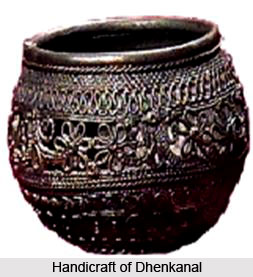 The economy of Dhenkanal is solely dependent on the industries. However the industrial development of Dhenkanal is initiated in the post independence period of implementing plans. To buoy up the shattered economy right at the post independence era, during implementing plans, Government founded the District Industries Center (DIC), Dhenkanal being added within the jurisdiction of the department on 1st August 1978.
The economy of Dhenkanal is solely dependent on the industries. However the industrial development of Dhenkanal is initiated in the post independence period of implementing plans. To buoy up the shattered economy right at the post independence era, during implementing plans, Government founded the District Industries Center (DIC), Dhenkanal being added within the jurisdiction of the department on 1st August 1978.
To build up a strong foundation of the economy of Dhenkanal, the first and foremost job undertaken by DIC was to identify the Small Scale Industrial (SSI) units, which were suffering due to the scarcity of adequate funds and effective infrastructure. Identification of the prospective entrepreneurs was also a significant aim of the DIC. To prop up the economy of Dhenkanal, right after the identification of SSI units and the entrepreneurs, the DIC issued permanent and provisional Registration certificates and recommended OSFC to provide bank loans to those SSI units. The DIC also involved a bulk of local workforce to those SSI units. Thus the SSI units at the first phase of economic development aided Dhenkanal dually- providing employment to the local workforce and supporting the domestic economy. To maintain a sustainable economic growth, the government approached marketing support to those units and at the same time adopted various measures to revive the sick industries. There is a genesis in the socio-economic standard of Dhenkanal due to the promotion of the cottage and the handicraft industries in the village, which maintained the rural economic augmentation in Dhenkanal to a sustainable rate. However the implementation of Self Employment Program and Khadi and village industries Board accentuate a rapid development of the village economy. The promotion of SSI units and the village economy was the foremost step adopted by the government during the first step of economic development.
To promote the economic development in Dhenkanal, Government in Dhenkanal provides five industrial estates or areas to the prospective entrepreneurs. The allotment of the industrial estates in Dhenkanal was established by IDCO. The IDCO also provides land to the PSI units (Panchayat Samiti Industrial co-operative Societies). Presently there are two PSI units functioning in the district of Dhenkanal, which contributes to the economy of Dhenkanal. The State Government of Orissa has invested funds in the PSI units in the form of share capital, to meet the economic demands of these units. The principal objective behind setting up the PSI units is to provide employment to the local artisans and improve the economic condition of the rural folk of Dhenkanal.
Moreover the natural endowments of Dhenkanal are helpful enough for the development of the financial standard in Dhenkanal. The raw materials available from agriculture, forest and minerals help to accentuate the economic development in Dhenkanal. Dhenkanal is well connected with the effective road network supported by N.H.-42, N.H.-200 and railway line to other commercial centers of the state; hence that serves the economy of Dhenkanal also.
In the later phase of the economic development, the Government employed the scheme of Prime Minister Rojgar Yojna in the financial year of 1993-94 in the urban areas and from 1994-95 both in the rural and the urban areas to provide Self Employment to the educated unemployed youth. By providing economic support to the youth folk was the key instrument to generate a socio-economic genesis in the district of Dhenkanal.
Though the promotion and the revival of the sick industries including the handicraft and the cottage industries was initiated by the Government during the first phase of the commencement of financial years, village handicraft and the cottage industries have come up as a significant contributor in the economic scenario of Dhenkanal, only in the recent years. With the assistance of the district DIC, handicraft industries are provided with funds as a share capital, for purchasing of tools and equipments construction for showrooms and godown. Under the rehabilitation of the handicraft schemes, the artisans are provided with finance and marketing support. Nowadays the artisans are given training to exploit the modern technology and scientific measures to upgrade the quality of their handicraft products.
